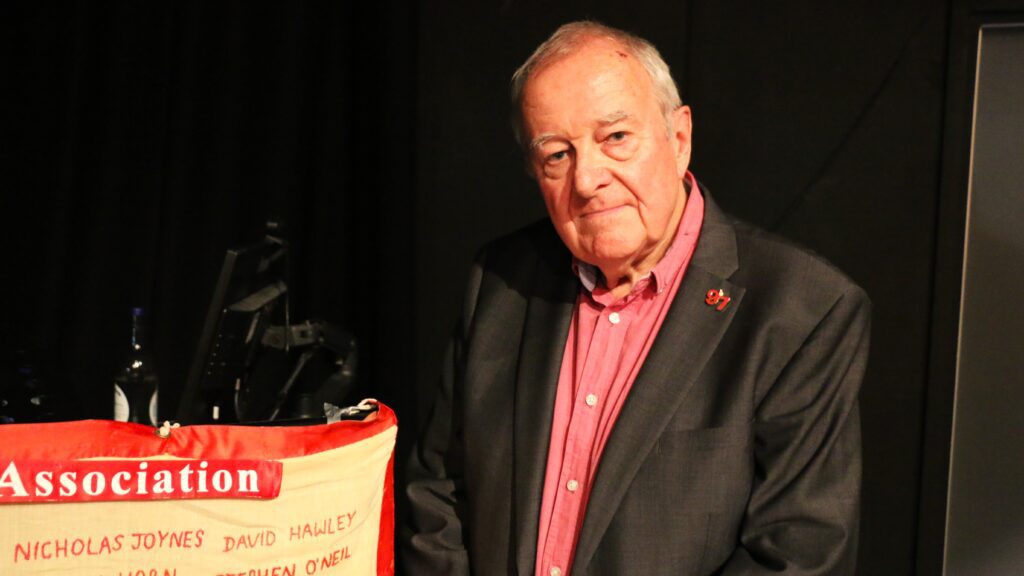A career in policing is an excellent prospect for anybody who has an interest in justice and problem-solving. There are different routes into the police with options including a Pre-join Policing degree as well as apprenticeships where you will learn on the job.
Crime rates have increased by 23% over the last seven years, so the police need new applicants. There are a variety of ways to get into the police, the steps below should help you understand, in a simple way, how to become a police officer.
A professional policing degree
The police are responsible for dealing with the public on an everyday basis, a lot of the time in difficult situations. Being a police officer is a rewarding but demanding job, and police forces are very careful with their recruitment process.
To ensure your success, get a pre-join degree, licensed by the College of Policing. This is one of the most common routes into policing, especially for younger people without experience in related workforces.
A pre-join degree will give you all the subject knowledge and skills you need, and let you build your experience in a safe space.
Here at Edge Hill University, we have this available with our Professional Policing degree. The course is licensed by the College of Policing and caters for anyone looking to join the police or other careers in the civil service.
Our Professional Policing course has a hands-on approach to learning. You’ll assess the core functions of policing, the criminal justice system and elements of Law and Criminology. You will also discover your strengths, weaknesses and passions, which will help you when deciding whether to go straight into a police force, or explore other careers in areas like criminal justice, civil service, or youth offending.
Upon graduation, you will have the theory and practical skills needed to join the police. The course has both a full time and part-time study pathway ranging from three to five years. Learn more about our policing course.

Applying for the police
It’s important to make sure you meet the minimum eligibility requirements to join the police. These can change between police forces, so it’s best to do some research for yourself.
There are a few eligibilities that are universal across the UK:
- Be over the age of 18
- Have lived in the UK for at least the last three years
- Have a qualification equal to an A Level
Take a look at what police forces are hiring. In general, the application process consists of four main stages:
Police application form
The first step is the application form, which involves a questionnaire.
When filling out the questionnaire, make sure you answer the questions honestly. Remember, you are joining the police, integrity is key.
At the end of the questionnaire, you should be prompted to receive an application pack. Fill your application pack out to the best of your ability. Remember to sell yourself on why you would be a perfect fit for the police.
Research the core moral values of the police, explain how you practise and embody these values in everyday life.
Complete the pack and send it off. All going well, you should hear something back from your chosen police force for the assessment centre.
Attending the assessment centre
The police search assessment centre plays a crucial part in the application process to become a police officer.
You will be tested in a variety of ways: a competency-based interview, role-play exercises, a test on your verbal ability and your numerical ability. The whole interview will be around 20 minutes long, so make sure you’ve studied up.
Medical and fitness policing tests
As you may be aware, being a police officer can be a physical job, so it’s important that the employees are in good physical condition.
To test if a candidate is fit enough, the police force will conduct a bleep test — running between two points that are 15 metres apart. The test increases pace from 7.9kph to 9.9kph over the space of 35 runs.
The police recommend that you start training by doing cardiovascular activity up to six weeks before the test.
The police medical tests can vary from force to force, but they usually include:
- Checking your BMI (Body Mass Index)
- Blood pressure check and urinalysis
- Hearing and vision tests
- Lung capacity and function test
- A musculoskeletal assessment
Completing a background check
Each police force needs to make sure that they’re vetting applicants, so they conduct a background check.
The criteria involve, but are not limited to:
- Convictions, including criminal convictions and cautions and motoring offences
- Drug use
- Poor employment records
- False information given on the application form
Extra assessment stages
Most forces will have additional assessments after running all these prior tests and checks, to ensure you are the right fit for the role. Usually, forces will run some type of second interview, so make sure you impress.
The desired force you’re applying for should give you more information on their application process and what qualities and skills they are looking for in potential officers.


Other routes into the police force
Whilst going down the degree route is the best option for many individuals looking to become a police officer and gain a broader knowledge of law enforcement in general, certain police forces do offer apprenticeships.
The Police Constable Degree Apprenticeship (PCDA), allows you to earn money whilst learning the job of a police constable. The programme typically takes three years to complete and, upon completion of the programme, you will be awarded a Professional Policing Practice degree. See what forces are hiring through apprenticeships.
Alternatively, some police forces are still allowing applicants to join through the traditional initial police learning and development programme (IPLD). However, the IPLD will soon become a thing of the past, as more and more forces want applicants as apprentices or pre-join degree holders. Take a look at what forces are hiring via the traditional entry route.
In summary
The most common route into policing is:
- Get a pre-join policing degree licensed by the college of policing
- Meet the minimum eligibility requirements
- See what police forces are hiring
- Complete the police application form
- Pass the assessment centre, and the medical fitness tests
- Pass the background check
- Complete any other additional assessment stages (these vary from force to force)
If you are unable to get into your desired force, don’t give up. There are plenty of forces and sectors to apply for, listen to the feedback that the police had for you, take it on board and go again.
June 8, 2022


